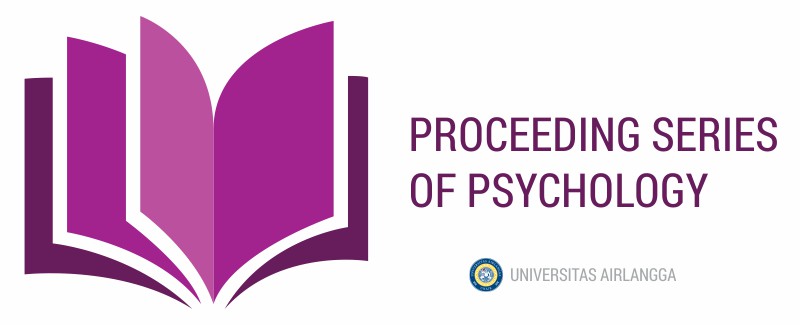Positive Psychology and Post Truth: Alleviating the Non-Clinical Impact of the Pandemic
Kata Kunci:
Pandemic, Positive Psychology, Post-TruthAbstrak
This study explores the non-clinical impact of the post-pandemic era on adolescents, specifically the post-truth phenomenon and mitigation mechanisms. Post-truth refers to an era characterized by truth distortion, emerging from widespread mistrust and misinformation during the pandemic. This skepticism persisted post-pandemic, affecting how teenagers process information and influencing their cognitive behaviors. A positive psychological approach is proposed to reconnect rational truth and conscience, fostering appropriate thinking behaviors after the pandemic. Employing qualitative methods with a phenomenological design, the study encompasses fieldwork, literature review, data analysis, and results presentation. The data spans research findings from 2019-2022 indexed in SINTA and Scopus, supplemented by the author’s observations from online and offline media, as well as discussions with relevant informants. Findings indicate that positive psychology can guide adolescents toward maintaining rationality and conscience, encouraging adaptive behavior, appropriate emotional responses, and critical thinking amid post-truth challenges. The study underscores the need for further research into positive psychological interventions that can effectively reduce post-pandemic non-clinical impacts across age groups. This approach aims to enhance teenagers' resilience, promoting sound judgment and adaptive cognitive practices in uncertain informational landscapes.
Referensi
Barzilai, S., & Chinn, C. A. (2020). A review of educational responses to the “post-truth” condition: Four lenses on “post-truth” problems. Educational Psychologist, 55(3), 107–119. https://doi.org/https://doi.org/10.1080/00461520.2020.1786388
Carr, A., Cullen, K., Keeney, C., Canning, C., Mooney, O., Chinseallaigh, E., & O’Dowd, A. (2021). Effectiveness of positive psychology interventions: a systematic review and meta-analysis. The Journal of Positive Psychology, 16(6), 749–769. https://doi.org/https://doi.org/10.1080/17439760.2020.1818807
Chertoff, J. D., Zarzour, J. G., Morgan, D. E., Lewis, P. J., Canon, C. L., & Harvey, J. A. (2020). The early influence and effects of the coronavirus disease 2019 (COVID-19) pandemic on resident education and adaptations. Journal of the American College of Radiology, 17(10), 1322–1328. https://doi.org/https://doi.org/10.1016/j.jacr.2020.07.022
Compton, J., van der Linden, S., Cook, J., & Basol, M. (2021). Inoculation theory in the post‐truth era: Extant findings and new frontiers for contested science, misinformation, and conspiracy theories. Social and Personality Psychology Compass, 15(6), e12602. https://doi.org/https://doi.org/10.1111/spc3.12602
Compton, J., Wigley, S., & Samoilenko, S. A. (2021). Inoculation theory and public relations. Public Relations Review, 47(5), 102116. https://doi.org/https://doi.org/10.1016/j.pubrev.2021.102116
Engemann, K. J., & Miller, H. E. (2022). Taking comfort in decisions: Implications in a pandemic. Intelligent Decision Technologies, Preprint, 1–13. https://doi.org/10.3233/IDT-210059
Gable, S. L., & Haidt, J. (2005). What (and why) is positive psychology? Review of General Psychology, 9(2), 103–110. https://doi.org/10.1037/1089-2680.9.2.103
Glăveanu, V. P. (2017). Psychology in the post-truth era. Europe’s Journal of Psychology, 13(3), 375. https://doi.org/10.5964/ejop.v13i3.1509
Hiscott, J., Alexandridi, M., Muscolini, M., Tassone, E., Palermo, E., Soultsioti, M., & Zevini, A. (2020). The global impact of the coronavirus pandemic. Cytokine & Growth Factor Reviews, 53, 1–9. https://doi.org/https://doi.org/10.1016/j.cytogfr.2020.05.010
Kufi, E. F., Negassa, T., Melaku, R., & Mergo, R. (2020). Impact of corona pandemic on educational undertakings and possible breakthrough mechanisms. BizEcons Quarterly, 11(1), 3–14.
Lapsley, D., & Chaloner, D. (2020). Post-truth and science identity: A virtue-based approach to science education. Educational Psychologist, 55(3), 132–143. https://doi.org/https://doi.org/10.1080/00461520.2020.1778480
Luthans, F., & Broad, J. D. (2022). Positive psychological capital to help combat the mental health fallout from the pandemic and VUCA environment. Organizational Dynamics, 51(2), 100817. https://doi.org/10.1016/j.orgdyn.2020.100817
McCune, J. C. (1999). Big brother is watching you. Management Review, 88(3), 10. https://www.proquest.com/openview/1c591f7e055ddc47d00eebffb9479de4/1?pq-origsite=gscholar&cbl=41493
McGuire, W. J. (1970). A Vaccine for Brainwash. Psychology Today, 4(6), 36-39
Nicola, M., Alsafi, Z., Sohrabi, C., Kerwan, A., Al-Jabir, A., Iosifidis, C., Agha, M., & Agha, R. (2020). The socio-economic implications of the coronavirus pandemic (COVID-19): A review. International Journal of Surgery, 78, 185–193. https://doi.org/https://doi.org/10.1016/j.ijsu.2020.04.018
Pavlovski, M., & Dunđer, I. (2018). Is big brother watching you? A computational analysis of frequencies of Dystopian Terminology in George Orwell’s 1984. 2018 41st International Convention on Information and Communication Technology, Electronics and Microelectronics (MIPRO), 638–643. https://doi.org/10.23919/MIPRO.2018.8400120
Power, D. J. (2016). “Big Brother” can watch us. Journal of Decision Systems, 25(sup1), 578–588. https://doi.org/https://doi.org/10.1080/12460125.2016.1187420
Raymond, I. J., & Raymond, C. M. (2019). Positive psychology perspectives on social values and their application to intentionally delivered sustainability interventions. Sustainability Science, 14(5), 1381–1393. https://doi.org/https://doi.org/10.1007/s11625-019-00705-9
Ruiz-Frutos, C., Ortega-Moreno, M., Dias, A., Bernardes, J. M., García-Iglesias, J. J., & Gómez-Salgado, J. (2020). Information on COVID-19 and psychological distress in a sample of non-health workers during the pandemic period. International Journal of Environmental Research and Public Health, 17(19), 6982. https://doi.org/https://doi.org/10.3390/ijerph17196982
Rupani, P. F., Nilashi, M., Abumalloh, R. A., Asadi, S., Samad, S., & Wang, S. (2020). Coronavirus pandemic (COVID-19) and its natural environmental impacts. International Journal of Environmental Science and Technology, 17(11), 4655–4666. https://doi.org/https://doi.org/10.1007/s13762-020-02910-x
Seligman, M. E. P., & Csikszentmihalyi, M. (2014). Positive psychology: An introduction. In Flow and the foundations of positive psychology (pp. 279–298). Springer. https://doi.org/10.1007/978-94-017-9088-8_18
Skarpa, P. El, & Garoufallou, E. (2021). Information seeking behavior and COVID-19 pandemic: A snapshot of young, middle aged and senior individuals in Greece. International Journal of Medical Informatics, 150, 104465. https://doi.org/https://doi.org/10.1016/j.ijmedinf.2021.104465
Stoller, J. K. (2021). A Perspective on the Educational “SWOT” of the Coronavirus Pandemic. Chest, 159(2), 743–748. https://doi.org/https://doi.org/10.1016/j.chest.2020.09.087
Suppasri, A., Kitamura, M., Tsukuda, H., Boret, S. P., Pescaroli, G., Onoda, Y., Imamura, F., Alexander, D., & Leelawat, N. (2021). Perceptions of the COVID-19 pandemic in Japan with respect to cultural, information, disaster and social issues. Progress in Disaster Science, 10, 100158. https://doi.org/https://doi.org/10.1016/j.pdisas.2021.100158
Susilawati, S., Falefi, R., & Purwoko, A. (2020). Impact of COVID-19’s Pandemic on the Economy of Indonesia. Budapest International Research and Critics Institute (BIRCI-Journal): Humanities and Social Sciences, 3(2), 1147–1156. https://doi.org/https://doi.org/10.33258/birci.v3i2.954
Vieira, C. M., Franco, O. H., Restrepo, C. G., & Abel, T. (2020). COVID-19: The forgotten priorities of the pandemic. Maturitas, 136, 38–41. https://doi.org/https://doi.org/10.1016/j.maturitas.2020.04.004
Unduhan
Diterbitkan
Terbitan
Bagian
Lisensi
Hak Cipta (c) 2024 Nanda Alfan Kurniawan, Ratih Christiana, Husni Hanafi, Randy Saputra

Artikel ini berlisensiCreative Commons Attribution-ShareAlike 4.0 International License.


